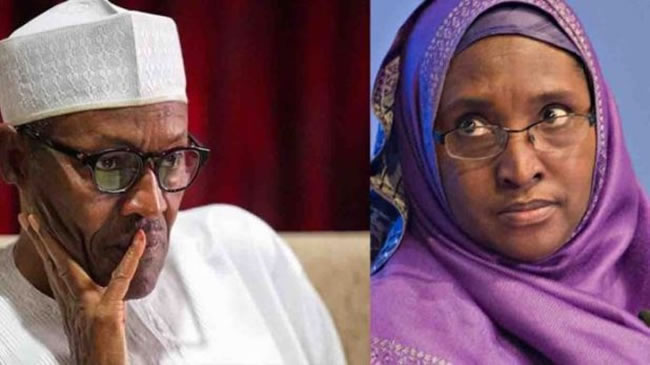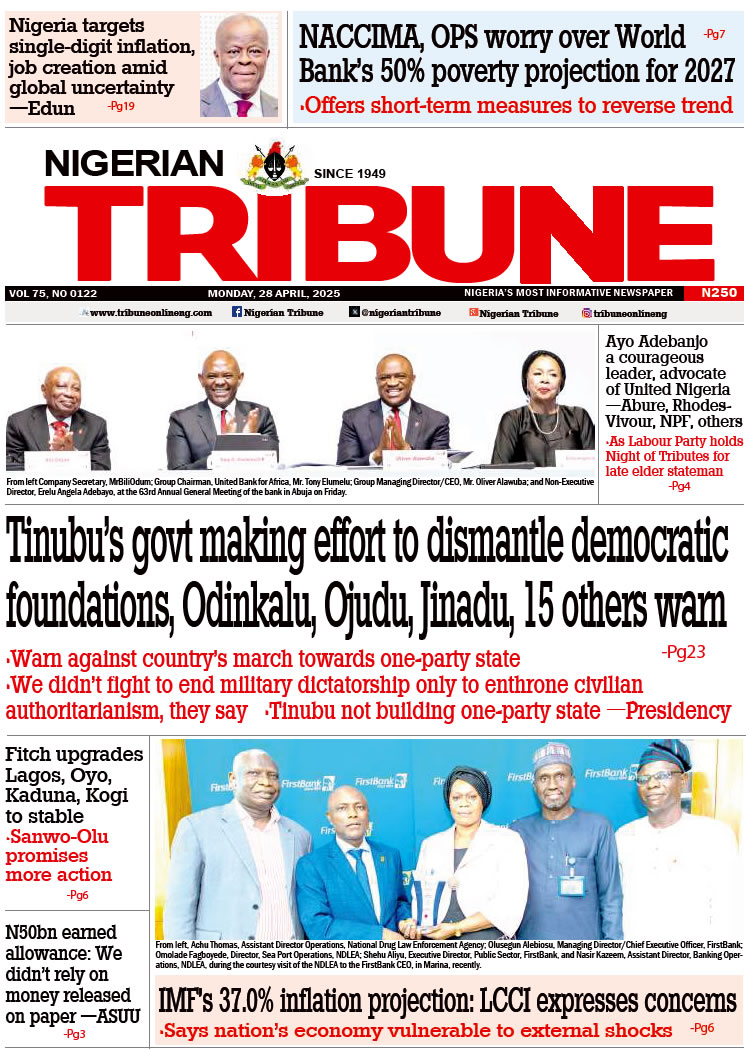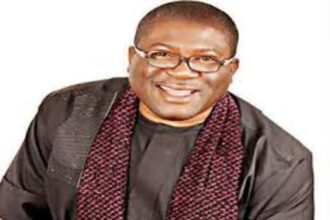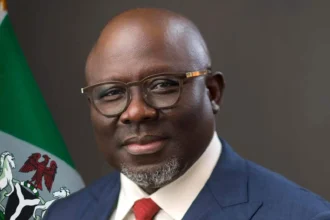Through the lenses of experts in various sectors, AKIN ADEWAKUN examines the dangers posed by the COVID-19 pandemic to the already wobbling economy, reporting experts’ prognoses of measures to be taken by micro- and macro-economic managers to mitigate some of the negative effects of the pandemic.
WHEN Nigerians, at the beginning of the year, expressed their reservations about the 2020 budget, especially the signing of the Finance Bill, which, they argued, would further impoverish the common man, little did they envisage the advent of a public health crisis, in form of COVID-19, throw economies of individuals, corporate bodies and even nations, around the globe, into further disarray.
The budget
The Federal Government had come up with an ambitious budget of N10.3trn ($28.5bn), while making clear its intention to shore up its revenue at N8.18 trillion in 2020, a figure, seven per cent higher than the budgeted estimates for the year.
Its spending plan was also based on an average production figure of 2.18 million barrels per day (bpd) at an average price of $57 a barrel, with an assumption that the official exchange rate would stay constant at N305 to $1.
Other key provisions of the budget included a capital expenditure of N2.46trn in total, with the highlights of the spending comprising: Works and Housing, N262bn; Power, N127bn; Transportation, N123bn; Universal Basic Education, N112bn; Defence, N100bn; Education, N48bn; and health, N46bn.
The budget also comprised a 50 per cent increase in Value Added Tax, from five per cent to 7.5 per cent, with a fiscal deficit of N2.8trn, which the government aims to finance with local and foreign borrowing, among others.
Interestingly, few months into the year, not a few stakeholders, however, believe the ambitious budget might not be sustainable, after all.
More worrisome is the advent of COVID-19, a public health crisis that has begun to take its tolls on the economies of nations, including that of Nigeria.
Not a few stakeholders, comprising public affairs analysts, advocacy groups, seasoned financial experts, who spoke with the Sunday Tribune, believe the pandemic, has thrown spanners into the works of the Federal Government, regarding this year’s budget and rendered projections made in the fiscal document, irrelevant in the day’s reality.
For this cross section of professionals, the nation’s economy is heading for the rocks, and it would take concerted efforts of stakeholders to redirect it.
While speaking with Sunday Tribune, the Governance Manager, Action Aid Nigeria, a non-governmental group, Mr Celestine Odo, described the implications of the pandemic for the economy as ‘too enormous.’
According to him, the first signs of distress could be seen in the shrinking fortunes of oil, the nation’s economic mainstay, in the global market.
“When we have the public hearing at the parliament, it was clear that $57 per barrel projection then was not realistic, and the over 2million barrels per day, too. From the beginning, it was built on faulty foundation, and looking at the trend ever since, it has been fluctuating.
“Unfortunately, since the advent of COVID 19, it has really come down so badly. At a point oil was worth nothing at the global market.
“So the question is where will government be getting the funds to carry out its responsibilities to the people, when the major source of its revenue, has continued to shrink?” he asked.
The decision by the federal government, to review the budget twice, for him, clears no doubt about the change in the fortune of the nation’s economy.
“You’ll see that the budget has been reviewed twice, the first review was $30 and it’s being taking to $25 per barrel. For us, the challenge, we foresee for the economy will be much.
“In April, this year, if I’m right, the money given to the states, were drawn from the Stabilisation Fund. So, what is going to happen in the coming months? Unfortunately, most states depend on these allocations to function. That tells us that there is danger ahead,” he argued.
Pandemic portends a looming recession for the economy, NECA, DG
The Director of Nigeria Employers’ Consultative Association (NECA), Dr Olawale Timothy, stated that with close to 7 milion people already infected and over 400,000 deaths globally, the crisis had already transformed into an ‘economic and labour shock.’
Besides impacting supply (production of goods and services), the public health crisis, he stated, has also disrupted demand (consumption and investment), since businesses, regardless of size are facing serious challenges.
“The crisis has already transformed into an economic and labour market shock, impacting not only supply (production of goods and services) but also demand (consumption and investment).
“All businesses, regardless of size, are facing serious challenges, especially those in the aviation, tourism and hospitality industries, with a real threat of significant declines in revenue, insolvencies and job losses in specific sectors.
“Members of NECA are not isolated from the current pandemic, as it affects both the small, medium and large corporations. Following travel bans, border closures and quarantine measures, many workers cannot move to their places of work or carry out their jobs, which have knock-on effects on incomes, particularly for informal and casually employed workers. Consumers are unable or reluctant to purchase goods and services,” he added.
According to him, given the current environment of uncertainty and fear, enterprises are likely to delay investments, purchases of goods and the hiring of workers, a development that is responsible for the rapid deterioration of prospects for the economy and the quantity and quality of employment.
He added that the pandemic would have significant effects on both ends of enterprise, since the supply of its inputs would be greatly impacted with low or no production as well as of loss of revenue.
“The interest on loan facilities and other overheads- rents, would be on the increase. For those that can get their products to the market, current limitations on the movement of people and goods may restrict this type of coping mechanism. The decline in economic activity and constraints on people’s movements is impacting both manufacturing and services,” he added.
Olawale added that with the envisaged job losses of about 24.7million, globally, by the International Labour Organisation (ILO), due to the pandemic, such losses would also have their impact on the nation’s economy.
According to him, the pandemic had resulted into the global crash of crude oil prices, which currently sells about $35/barrel, due to shut down of factories.
Implication of such, even to the nation’s economy that depends solely on revenue from its oil production, he stated, are grave.
“It portends a looming recession for the economy and a huge pressure on the foreign reserves.
Short to medium outlook of the economy, bleak —LCCI
Describing the nation’s economic outlook as bleak, as a result of the COVID-19 pandemic, the President of the Lagos Chamber of Commerce and Industry (LCCI), Mrs Toki Mabogunje, stated that the development had led to an unprecedented collapse in commodity prices, capital flight, turmoil in the capital market, supply chain disruption across sectors and destabilisation of commercial and economic activities.
Mabogunje, in her state of the nation’s economy address, noted that though the economy recorded a sustained recovery as GDP growth advanced to 2.55 percent in the final quarter of 2019, compared to 2.28 percent in the preceding quarter, she however expressed concerns at the broad-based under performance across key sectors such as agriculture, trade and manufacturing, with strong potentials to drive economic diversification.
While warning of a looming severe contraction of the economy by year end, the LCCI boss, expressed deep concerns about the slump in crude oil prices, due to weakening demand as Brent, Nigeria’s benchmark grade, has dropped by over 50 per cent since the beginning of the year.
She noted that the crash in global oil prices had incited intense fiscal and external pressure on the economy and severely distorted the Federal Government 2020 budget as a result of the country’s huge exposure to the oil market.
Mabogunje also expressed concerns about the consequent effects of all those negative developments on investment and employment in the oil industry, generally.
“The IMF projects significant economic contractions in oil-exporting countries, with Nigeria’s GDP forecast to plunge by 3.4 per cent. Most oil companies have reduced their capital expenditure to minimise losses and we are concerned about the consequent effects of all these developments on investment and employment in the oil industry generally.
“The Federal Government’s revenue targets, budget plans and fiscal stability are all under increased pressures as a result of shrinking oil receipts induced by low oil prices and huge volume of unsold supplies,” she added.
Nigeria’s economy, experiencing a slide — Adesuyi
A financial expert and chief executive officer of Wealthgate Advisor, Mr Adebiyi Adesuyi, shares same sentiments. For him, one does not require a soothsayer to notice the continued slide in the nation’s economy.
Adesuyi argued that the drastic shrink in the oil price, as a result of COVID-19, had rendered the implementation of the budget not feasible.
“You know the Accountant General of the Federation said recently that donations for the management of COVID-19 would be used for supplementary budget, a move I find to be anathema to fiscal management.
“The money was meant for a specific purpose, probably for building isolation centres, to buy ventilators, PPEs for medical personnel and medical consumables. You are now saying you’ll convert it to federal budget.
“Remember, these donations are from different corporate organisations, to manage an emergency situation like this and you are now saying you’ll use it to fund supplementary budget. If you are going to do that at all, that means it must pass through the national assembly and go through the normal appropriation process,” he stated.
The Wealthgate Advisor’s boss described the utterance of the Accountant General as an indication that things are terribly bad, and the nation’s economy in bad shape.
He argued that since the income expected by the government is not coming in, everything about the project would end up being mere projections.
“The projection was that oil would sell between $50 to $60, per barrel, now it hovers around $30 per barrel, as a result of the pandemic, there is no way this will not affect the implementation of the budget and the economy,” he stated.
According to him, though taxation forms another means through which the federal government derives its revenue, he however believes that would only be achieved when the federal government must have spent money derived from oil.
“Taxes will only be gotten when the federal government has earned money from oil, and begins to spend such money. It is then that companies would be able to sell and spend, at the same time.
“That is why you see that in the first few months, when budgets are not passed, nothing moves in Nigeria. That is the reality. All corporate organisations would be expecting budget pronouncement, because until that, nobody knows the direction the government is going.
“Until government begins to spend oil money, nobody will be able to buy cement, nobody will be able to buy roofing sheets, no construction of roads, no construction of hospitals. It is when government does all these things that money will come to the private sector, since contractors will make purchases from the private sector for the execution of projects and other things.”
He expressed concerns that if the situation is not given the utmost attention it deserves, the common man on the streets would come out worsted since there would be less to spend, just because of government’s lean purse.
“That is why we call it multiplier effects. Government releases money to Julius Berger, to carry out the construction of Niger Bridge. The company will buy cement from local cement manufacturers, buy sand and granites from local contractors, within Asaba and Onitsha. Also you want to build a Federal Polytechnic at Ile Oluji, in Ondo State, the Ministry of Education releases N1billion to build may be their School of Engineering, the contractor will buy cement, sand and gravels, from those traders in the community. That is how money penetrates our economy. Until government spends, money cannot penetrate,” he added.
Adesuyi also stated that the pandemic has negatively impacted other sources of government revenue, such as taxation. According to him, the fact that companies were under lock and key as a result of COVID-19 simply indicates that the possibility of government getting revenue, in form of taxes from those companies, for some time to come, would remain very remote.
“The fact remains that if people are not buying the companies’ products, as a result of the lockdown, how will they make profit from which they are supposed to pay corporation taxes? If a company’s turnover shrinks, the tax they’ll pay will shrink,” he stated.
Adesuyi, however, foresees another round of economic recession, as witnessed in 2015, this time round due to the pandemic, which has shrunk every channel through which government generates revenue.
Since oil export constitutes the country’s major source of foreign exchange, the continued shrink in oil revenue, Adesuyi believes, will, without doubt, affect the nation’s foreign exchange reserve, a development that might see the country’s currency, the Naira, depreciate in the market.
“And once this happens, what it means is that things will be expensive; since this is an import-dependent economy. People will not be able to buy more because their incomes have not moved up, compared to the rate at which inflation has moved up. Standards of living will go down as cost of living goes up. So that is how it will affect the economy,” he stated.
Light at the end of the tunnel, if…
Interestingly, many believe that the pandemic provides the nation the opportunity to reset and truly carry out the much-touted diversification of the economy.
“The truth is that our economy was not properly managed, before now. So it is time for Nigeria to reset,” argued Adesuyi.
He believes there are opportunities to be explored in the situation. For instance, government, he counseled, should reset the economy in a way that the country will no longer depend on oil.
“We should also promote manufacturing. We should promote the addition of value into our agricultural product before we export them. We should identify those things that we can manufacture quickly on a state by state basis, in a way that Ondo State could specialise in the manufacturing of pharmaceuticals; Kano State could be leather products; Abia could be textile, while Rivers could be garment.
“If we can do it in such a way that we can get these products quickly to the market, and we begin to export, so that we don’t depend solely on oil again, I think we are on our way to prosperity, as a nation,” he added.
The Wealthgate Advisor’s boss also called for the creation of off-grid power generation and supply system that will take care of groups of industries.
“People have been talking of power as the bane of manufacturing in Nigeria, there should be off grid power generation and supply that will not be connected to public power supply. You create an industrial estate, and within the place there will be a power generating system that will focus on the provision of power to all the manufacturing companies in that industrial park,” he added.
For Olawale, swift and coordinated policy responses are needed with strong political will, to limit the direct health effects of COVID-19 on workers and their families, as well as the economy.
While commending the efforts of the Federal Government (Ministry of Finance, Central Bank of Nigeria, Federal Inland Revenue Services), for providing palliatives and stimulus to businesses, he however noted that much more could be done to keep businesses afloat and reduce the risk of massive job losses.
He therefore called on the federal government to urgently accord businesses more structured and specific support to enable them stay afloat and reduce the impact of Coronavirus on them.
“More than ever before, government should seek the collaboration of organised businesses to save our country from the crippling effect of the disease and its long-term socio-economic effects.
“Governments in other climes, in supporting organised businesses, had taken specific measures to protect local industries and guarantee job security for their citizens. These should be replicated in Nigeria to protect businesses from collapse and also protect jobs,” he added.
Mabogunje, however, harps on the need for individuals and corporate organisations to embrace creativity and innovation to be able to fully explore the opportunities the public health crisis presents.
She also believes that the situation presents government and policy makers the opportunity to pursue structural reforms and put in place home-grown policies.
“We are of the view that the current COVID-19 experience presents an ample opportunity for the government and policymakers to pursue structural reforms and put in place home-grown policies.
“Reforms such as the liberalisation of the petroleum downstream sector, exchange rate convergence, securitising government’s equities in joint ventures, privatising government’s redundant assets, PPP-led infrastructural development, export diversification, agro-based industrialization and cut in governance costs are direly needed to aid the rebound of the economy going forward and especially in times of adversity,” she added.
Celestine Odo believes the way out now is for government to be transparent and be accountable, to enable the public understand the challenge.
“We should also see it as an opportunity to cut the cost of governance and reduce the number of political aides. Thank God the president has actually agreed to the Oronsanye’s recommendation of merging some MDAs and so on, but it’s an opportunity to do more,” he added.
YOU SHOULD NOT MISS THESE HEADLINES FROM NIGERIAN TRIBUNE
Obaseki Obtains PDP Nomination, Expression Of Interest Form
Governor Godwin Obaseki of Edo State on Friday evening obtained the Peoples Democratic Party (PDP) nomination and expression of interest form. Obaseki formally joined the party on Friday afternoon and has shown his interest to contest for the governorship election under the party… Read Full Story
PDP Screens Obaseki Saturday
There are strong indications that the Peoples Democratic Party (PDP) will on Saturday screen Governor Godwin Obaseki for the Edo State gubernatorial primaries billed to hold this month. An opening to accommodate the screening of Governor Godwin Obaseki after the party screening committee led by… Read Full Story
School Reopening Guidelines: 2 Million Lagos Students Face Uncertainty
IT appears that reopening of schools in Lagos State is not going to happen anytime soon despite the desire of all stakeholders to see students return to the classrooms. The COVID-19 pandemic does not seem to be in a hurry to go away and stakeholders in the state may also have accepted the reality that having… Read Full Story
Ajimobi Remains Bonafide APC Chairman ― Onilu
Senator Abiola Ajimobi led National Working Committee (NWC) has insisted that Senator Abiola Ajimobi remains the genuine Chairman of the ruling All Progressives Congress in spite of the leadership crisis that has engulfed the party following the sacking of the former Chairman, Comrade Adams Oshiomhole… Read Full Story
Gender-Based Violence, Rape Dent On Our Collective Humanity, Dignity —Osinbajo
Vice President, Prof Yemi Osinbajo says gender-based violence, rape and sexual assaults are blemishes on the collective humanity and dignity of Nigerians as a people and a nation. Osinbajo expressed his displeasure on Friday in Abuja while addressing a virtual meeting of the National Human Rights Commission (NHRC), on the… Read Full Story
Domestic Violence Called Verbal Abuse In Marriage
LET me open this write up with this extract from a post I got through an elderly man on a WhatsApp platform last week. It is the provoking thought for this write up. “Everybody is hung up on domestic abuse by men against women. Nobody spares a moment to find solutions to the equally devastating verbal abuse men suffer… Read Full Story
Bauchi Denies ICPC Claim Of Seized Land Linked To Governor Bala Mohammed
Bauchi State Government has described as baseless and untrue as well as total falsehood the recent publication by ICPC that it has uncovered and seized a plot of land in Abuja linked to Governor Bala Mohammed Abdulkadir. In a statement by Mukhtar Gidado, Senior Special Assistant on Media and Publicity to the… Read Full Story
CNG Suspends Planned Protests In Other Northern States
The Coalition of Northern Groups (CNG) has said it has suspended its planned protests in other states slated for Saturday. In a statement issued by CNG image-maker, Abdul-azeez Suleiman remarked that having consulted widely and recounting the gains gathered during the protest in Katsina and Niger… Read Full Story
PDP Shifts Edo Primary Till Thursday, June 25
As the National Working Committee (NWC) of the Peoples Democratic Party (PDP) has granted a waiver to Edo State Governor Godwin Obaseki to contest the Edo governorship election primary on a new date of June 25 two days later than it has earlier announced… Read Full Story
Honour All Agreements, Saraki Appeals To PDP Stakeholders
Immediate past President of the Senate Olusola Saraki on Friday enjoined party leaders and all stakeholders who played one role or the other in wooing Obaseki to the Peoples Democratic Party to thread the path of honour and stick to agreements… Read Full Story
Eye Exams For Babies: Why They’re Important
FOR Iveren, after a very long wait to conceive, gave birth prematurely to baby Precious. Unfortunately, because she refused to have Precious examined soon during the critical four weeks after birth, owing to ignorance, Precious subsequently became blind from Retinopathy of Prematurity… Read Full Story
WHO Accepts Nigeria’s Wild Polio Virus Free Documentation
The proposed certification of Nigeria as a polio-free country in August this year is gradually becoming a reality. The indication was given by the Chairman of the African Regional Commission for Certification of Polio Eradication (ARCC), an organ of the World Health Organization (WHO), Professor Rose Leke, in a meeting with… Read Full Story
Backstory Behind Aisha Buhari’s Gunfight
By now, most people have read the story of the scuffle that occurred between Mrs. Aisha Buhari, her children, and her security aides on one hand and Sabi’u “Tunde” Yusuf, son of Buhari’s niece who also works as his private secretary, on the other hand, which caused Aisha’s ADC to shoot at Sabiu inside the… Read Full Story








